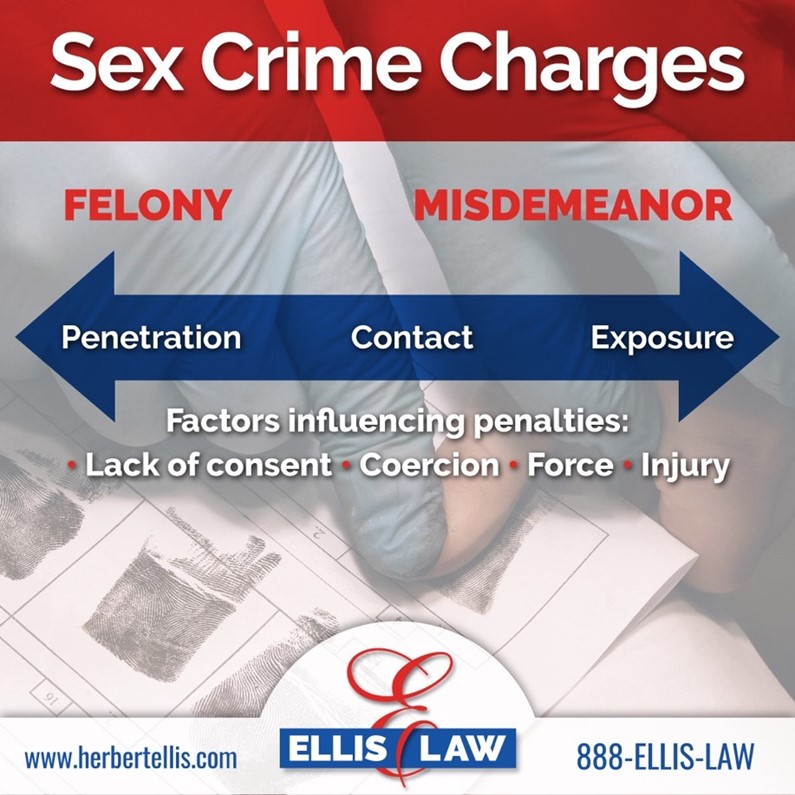What are the Different Types of Assault Charges?
If a person has been arrested and charged with aggravated assault in New Jersey or New York, they need a skilled lawyer to protect their rights. Violent crime offenses are serious charges that carry heavy penalties. The New Jersey criminal defense lawyers at Ellis Law help victims fight charges in and out of the courtroom.
Complaints and indictments of aggravated assault can occur in many different situations. According to the law in New Jersey, someone is guilty of aggravated assault if they committed any of the following:
- A person knowingly or purposefully causes or attempts to cause bodily injury to another person, or they recklessly cause such an injury with extreme indifference to the value of human life; this is considered a second-degree offense.
- A person attempts to cause or purposefully causes bodily injury to another person with a deadly weapon; this is considered a third-degree offense.
- A person recklessly causes bodily injury to another person with a deadly weapon; this is considered a fourth-degree offense.
- A person acts with extreme indifference to the value of human life and knowingly points a firearm in the direction of or at another person, whether the person believes the gun to be loaded or not; this is considered a fourth-degree offense.
What is Considered Simple Assault?
A person commits simple assault upon any of the following:
- Law enforcement is acting within the realm of their duties.
- A fireman is acting within the realm of their duties.
- An emergency first-aid responder or person in the medical services is acting within the realm of their duties.
- Any school employee, including a school administrator, board member, bus driver, or teacher.
- Any Family Services and Division of Youth employee.
- Any Supreme Court Justice, Superior Court Judge, Tax Court, or Municipal Judge.
In any of these cases, a violation is considered a third-degree offense if the victim actually suffers bodily harm; otherwise, it is considered a fourth-degree offense. Other common violations include:
- A person who causes bodily harm to another while operating a motor vehicle or while fleeing from a law enforcement officer; this is considered a second-degree offense.
- A person who acts with extreme indifference to the value of human life and purposefully or recklessly causes or attempts to cause significant bodily harm to another person; this is considered a third-degree offense.
- A person who causes bodily harm by knowingly causing an explosion or starting a fire. If the victim suffers a serious bodily injury or a significant bodily injury, it is a second-degree offense; otherwise it is a third-degree offense
A serious bodily injury is defined as a severe, permanent disfigurement, or protracted loss or impairment of the function of any bodily member or organ. A significant bodily injury is defined as an injury that creates temporary loss of function to a bodily member or organ.
What is an Assault by Automobile Charge?
New Jersey law contains specific provisions for assault cases involving automobiles. Each case is unique, and charges can range from a disorderly persons offense to a second-degree offense, based on the circumstances surrounding the automobile assault. Depending on the severity of the charge, automobile assault can carry penalties, such as serious fines and even jail time. A skilled criminal defense lawyer can help a client who is accused of assault by automobile.
In New Jersey, an individual can be found guilty of assault by automobile if they commit all of the following:
- The individual was the operator of the motor vehicle.
- The individual engaged in conduct that was reckless.
- The individual caused a car accident.
- An injury was caused by this reckless conduct.
For conduct to be considered reckless, it must involve actions that display extreme indifference to the welfare of others. Examples of recklessness include speeding, drunk driving, or the refusal of the driver to submit to a breathalyzer test.
When is the Charge a Disorderly Persons Offense?
Assault by automobile where the conduct results in bodily injury to another is a disorderly persons offense in the state of New Jersey. In this case, the driver of the automobile has consciously disregarded any risk of injury to others which resulted in injury or harm to another individual. Penalties for a disorderly persons offense include fines, probation, and up to six months in jail.
Can It be a Fourth-Degree Offense?
If the assault by automobile results in serious bodily injury to another person, the crime is considered a fourth-degree offense. This is distinguished from a disorderly persons charge by the extent of the bodily injury. Cases involving serious injury, opposed to simple injury, result in a fourth-degree assault by automobile charge. A conviction of fourth-degree assault by automobile charge increases jail time to 18 months.
Is the Charge More Serious If the Driver is Impaired?
If the assault by automobile charge involves driving under the influence (DUI) of alcohol, then the charge is much more serious. In an assault by automobile case that results in serious bodily injury from a driving while impaired (DWI) accident, the charge is a third-degree criminal offense.
In this case of a DWI accident resulting in serious injury to another person, the defendant faces five to 10 years in jail. If a third-degree assault by automobile charge is committed in a school zone, the charge is increased to a second-degree offense. A second-degree assault by automobile charge can involve 10 to 20 years of jail time. In any case involving assault by automobile, hiring a criminal defense lawyer will be a person’s best chance for defense.
What is Considered Sexual Assault?
Individuals charged with sexual assault or criminal sexual contact must do everything in their power to mount a vigorous and deliberate defense. Even if the charges may be false or overexaggerated, defendants in sexual assault cases face the possibility of losing their freedom and having their careers and reputations ruined. An experienced lawyer can build a solid sexual assault defense to ensure the best possible outcome.
At Ellis Law, the criminal defense team understands the gravity of sexual assault charges and how the legal system treats sexual assault differently than other crimes. Without this understanding, it is virtually impossible to construct a successful defense. A knowledgeable and experienced legal team will protect the rights of clients and secure positive results.
How is Sexual Assault Different Than Other Crimes?
Sexual assault and criminal sexual contact are different than other crimes in multiple ways, such as the following:
- Consent determines whether a crime was committed.
- Since sexual acts often occur in private without witnesses, there may be scant evidence to prove or disprove consent.
- The degree of force or coercion alleged will influence the severity of criminal charges.
- Registration as a convicted sex offender is likely to haunt a guilty defendant long after any penalty has been paid.
The issue of consent in particular makes sexual assault unique. In most assault crimes, the legal system automatically assumes that the plaintiff did not consent. The legal system may consider the plaintiff’s character or behavior in deciding the issue of consent. Furthermore, laws are evolving with respect to the definition of force. It now includes various means of coercion beyond physical force.
Establishing a legal defense against sexual assault charges is also difficult because the laws pertaining to sex crimes are complex and continue to evolve. For example, the legal trend is toward viewing sexual assault more broadly as unwanted bodily invasion rather than just a traditional definition of rape. The changing landscape of sexual assault law is another reason why it is important to seek professional legal counsel.
How is Sexual Assault Defined?
Each state has its own terminology for defining sexual assault and various sex crimes, such as rape, sexual battery, or criminal sexual penetration. Other states specify varying levels of criminality according to which body parts were involved. Broadly speaking, sexual assault is typically characterized by the act of penetrating some part of the body. However, penetration alone is not a crime unless it occurs by force without consent or when the plaintiff lacked the capacity to consent. In all cases, lack of consent turns the act into a crime. The definition of consent, or the ability to give consent, varies by state.
Many states also have laws against conduct that is sexual in nature but does not involve penetration if the act occurs without the plaintiff’s consent. Some states use the term sexual battery; in New Jersey, it is referred to as criminal sexual contact.
What are the Penalties for Sexual Assault?
States differ in the penalties they impose for sex crimes, ranging from probation to life in prison. Sentences vary according to the type of force used, the degree of bodily injury, the age of the plaintiff, and the use of a gun or other deadly weapon. Felonies typically involve penetration, use of force, and bodily injury. Criminal sexual contact without the use of a weapon may be considered a misdemeanor.

Some states specify a minimum prison sentence or require the court to impose a prison sentence without probation. Individuals convicted of sexual assault must typically undergo psychological treatment while serving time in prison or when they are on probation. They are also required to register their name, address, and information about the crime to a publicly available sex offender registry. Every state in the country maintains a sex offender registry and notification program.
How Does New Jersey Define Sexual Assault?
Sexual assault crimes in New Jersey fall under the following categories:
- First-Degree Offense: Aggravated sexual assault
- Second-Degree Offense: Sexual assault
- Third-Degree Offense: Aggravated criminal sexual contact
- Fourth-Degree Offense: Criminal sexual contact
New Jersey uses the term sexual assault to describe the act of rape. Under NJSA 2c:14-1, sexual assault is defined as the penetration in which physical force or coercion is used or in which a person is physically or mentally incapacitated. Sexual assault is a second-degree crime, carrying a penalty of up to 10 years in jail in addition to fines. According to NJSA 2c:14-2, aggravated sexual assault is an act of sexual penetration committed with another person under any of the following circumstances:
- The plaintiff is less than 13 years old or is incapacitated.
- The plaintiff is at least 13 years old, but less than 16 years old, and the actor has supervisory or disciplinary power over the plaintiff.
- The act is committed during robbery, homicide, or a similar type of crime.
- The actor is armed with a weapon.
- The actor uses physical force or coercion and the plaintiff sustains severe personal injury.
The wording of the law is gender neutral, using the terms “actor” and “plaintiff” to describe the individuals involved. Consent is a key element in the definition of sexual assault, whether it is aggravated or not. Lack of consent can be established by the use of physical force, coercion, and if the plaintiff was a minor, under the influence, or was incapacitated.
What is Statutory Rape?
In the state of New Jersey, plaintiffs who are under 13 years old are always considered unable to provide consent. Since this is written into the statue, this type of sexual assault is also referred to as statutory rape. An adult who is 18 years or older can be convicted of statutory rape if they have sex with someone under 16 years old, even if the plaintiff consented. The penalties will vary according to the ages of the plaintiff and the actor. Sexual assault involving penetration is a felony with a maximum 10-year prison sentence. A person convicted of aggravated sexual assault can receive a sentence of up to 20 years in prison. In most cases, New Jersey also requires actors convicted of sexual assault to register as sex offenders under Megan’s Law.
New Jersey Criminal Sexual Contact Law
Criminal sexual contact is a fourth-degree offense and punishable up to 18 months in prison. The charge of aggravated criminal sexual contact is a third-degree offense. This charge may be filed under the following circumstances:
- The actor is related to the plaintiff through blood or affinity to the third degree.
- Through their legal, occupational, or professional status, the actor has disciplinary or supervisory power over the plaintiff.
- The actor is a parent, family guardian, or stand-in loco parentis in the household.
A conviction of aggravated criminal sexual contact can result in three to five years in state prison. In addition to potential jail time, a guilty plea or a conviction for either of these charges can expose an individual to Megan’s Law registration requirements, as well as community supervision for life.
Is Sexual Assault a Federal Crime?
Sexual assault is considered a federal crime. However, most sexual assault cases are tried in state courts. In general, only the more serious sexual assault cases warrant federal charges. These cases may involve human trafficking of children, exploitation of children in creating or distributing child pornography, or sexual crimes that cross state lines. If a child dies because of sexual abuse, the case may also be tried in federal court.
Can Someone be Tried for the Same Crime at Federal and State Levels?
Depending on the specific circumstances of a sexual assault case, a defendant may be tried for the same crime at both the federal and state level. The U.S. Supreme Court has ruled that both state and federal courts can try and judge the same crime for different violations. If a crime is serious enough to be tried in federal court, it is likely to be tried in state court as well.
How Does a Lawyer Build a Successful Sexual Assault Defense?
Charges of sexual assault are always serious. A lawyer must take many things into consideration to build a successful sexual assault defense. This includes the following:
- Carefully reviewing and analyzing all circumstances of the case.
- Anticipating all possible arguments used by the prosecution.
- Evaluating all possible arguments for defense.
- Considering previous decisions of the court, including the disposition of the judge that will be hearing the case.
After weighing all these factors and more, a lawyer will then chart the best course of action, which may include a move to have the case dismissed, settlement out of court, and seeking full exoneration in the courtroom. Lawyers may choose to move to have the case dismissed if they can demonstrate that charges were not brought properly. If guilt appears obvious, a lawyer may seek to have the penalties reduced. This can mean the difference between months or years in prison or serving at least part of the sentence in probation.
Legal Strategies for Mounting a Sexual Assault Defense
One legal strategy in sexual assault cases is to demonstrate that consent was given before the act took place; however, this is not always the best approach. Proving consent is complicated if the act occurred in private and without any video or audio evidence from a cellphone or security camera. Even if the actor and the plaintiff engaged in prior consensual acts, it can be difficult to prove without a doubt that this particular act was also consensual. The specific circumstances of the case will determine the optimal course of action. Other legal strategies for mounting a sexual assault defense include the following:
Establishing Innocence: Defendants are innocent until proven guilty. It may be possible to use social media check-ins, text messages, phone call records, credit card receipts, or other time-stamped data to establish an alibi. For example, the plaintiff may have been under the influence of alcohol and misidentified the actor. DNA, hair, fingerprints, or other similar evidence may suggest that someone else committed the crime. A lawyer needs only to convince the jury that there is a reasonable doubt of guilt to get an acquittal.
Suppressing or Dismissing Evidence: There may be a legal argument for suppressing incriminating evidence. Sometimes, it is possible to have evidence thrown out altogether, such as when an undercover police officer is posing as a minor on the internet and the defendant engaged in online conversations. Evidence obtained in this way may not be legally admissible.
Claiming Insanity or Mental Incapacity: Defendants who have a mental condition that prevents them from understanding the criminal nature of their actions may be able to claim insanity or mental incapacity.
If the plaintiff is young, some defendants may want to argue that they thought the individual was older. However, mistake of age is not a valid defense in the state of New Jersey.
What is a Simple Assault Charge?
All violent crime offenses are serious charges that can carry heavy penalties. According to New Jersey law, a person is guilty of assault if they do the following:
- The person knowingly, purposefully, or recklessly caused or attempted to cause bodily injury to another person.
- That person negligently caused bodily injury to another person and used a deadly weapon.
- That person attempted to put another person in fear of serious bodily injury through physical menace.
What is the Simple Assault Statute?
The law defines bodily injury as any illness, physical pain, or impairment of the physical condition. If the actual or attempted physical contact as defined by bodily injury occurred to a greater extent, it is considered a serious bodily injury. A charge of simple assault is not limited to determining if the individual had the intent to assault someone. An individual may be found guilty of simple assault in many different scenarios with regards to intent or purpose. A simple assault charge could occur if that person acted knowingly, negligently, or recklessly. According to New Jersey law, criminal liability is imposed for attempted conduct.
An individual may also be charged with attempted simple assault if they tried to cause bodily harm to another or if they caused another person to fear imminent bodily injury. Recklessly causing a simple assault occurs when the accused individual intentionally disregarded a substantial risk of causing bodily injury. The recklessness involved a drastic deviation from reasonable behavior under those circumstances. Determining recklessness through lack of reasonable behavior can be subjective and is often case-specific.
Negligent simple assault arises from a situation involving a deadly weapon, such as any firearm or weapon, device, instrument, material or substance, which is used or is intended to be used to cause serious bodily injury. The behavior must violate the standard for reasonable behavior in a given situation. In this situation, a person must inflict bodily injury using a deadly weapon with the understanding of a substantial risk of injury. A case involving negligent cause of simple assault is often accompanied by an additional charge of weapon possession for unlawful purpose. These are very serious offenses and having a skilled and experienced lawyer is crucial.
What are the Consequences of Simple Assault?
Simple assault is typically a disorderly persons offense. However, the grading of the charge can vary based on the following situations:
- If the assault was committed in a fight that both parties entered into with mutual consent, the assault is considered a petty disorderly persons offense.
- In a simple assault case where the intended victim of the assault is a public official or police officer, the offense is considered an indictable felony charge.
- In the above situation where the simple assault is committed on the public official, the charge is a fourth-degree offense.
- If the assault in the above situation results in bodily injury to the public official, the charge is a third-degree offense.
Typically, a simple assault charge will involve a disorderly persons offense. The penalties for such a conviction can include fines of up to $1,000, court-ordered probation, and costs, such as a Safe Neighborhood Assessment, VDDB Assessment, or a domestic violence surcharge ranging from $50 to $100 or up to six months in jail. The maximum jail time is 30 days if the charge is for consensual fighting. A fourth-degree simple assault charge carries a maximum penalty of 18 months in jail, while a third-degree simple assault charge carries up to five years in jail. If a person is facing such charges, a criminal defense lawyer will be able to assist.
New Jersey Criminal Defense Lawyers at Ellis Law Advocate for Those Facing Assault Charges
Our New Jersey criminal defense lawyers at Ellis Law may be able to downgrade or eliminate an assault charge. If you were charged with assault, make sure you have the best protection possible. Police and other officials will begin building a case against you right away. For this reason, it is important to call us at 732-308-0200 or complete our online form for a free consultation today. Located in Freehold, New Jersey, we serve clients throughout East Brunswick, Toms River, Middletown, Jersey City, Neptune, Hudson County, Union County, Essex County, and Ocean County, as well as Brooklyn and New York City.






